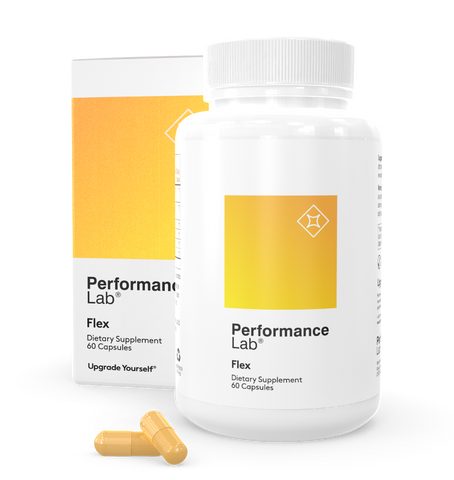Turmeric has gained a lot of attention in the natural health world. From people looking for a natural alternative to anti-inflammatory drugs to athletes looking to boost their recovery, it seems like a multi-purpose herb that benefits almost everyone in some capacity.
But what about those looking to improve their sleep? There’s no question that sleep is one of the most important things you can do for your body, but the reality is that few of us actually get what we need, both in terms of quality and quantity.
So, if you’re looking for a way to get the good night’s rest you deserve, we’re giving you a rundown of the benefits of turmeric and whether it’s something that you should add to your bedtime supplement stack.
Related Post: Turmeric Benefits for Men
What Is Turmeric?
The golden-colored spice you see stocked on shelves at the supermarket is the one and only turmeric. It’s a rhizome belonging to the ginger family that’s been used extensively throughout India, China, and Southeast Asia as a spice, preservative, and coloring material, along with a powerful medicinal agent that can treat all sorts of ailments 1.
While you may see turmeric in several cooking products and cuisines, where medicine is concerned, it’s usually curcumin we’re after—one of the bioactive compounds present in turmeric that’s largely responsible for many of its health-promoting properties.
Related Post: The Best Turmeric Supplement for Joint Health
What Does Turmeric Do?
Turmeric itself contains several bioactive compounds, including turmerin (a water-soluble peptide), essential oils (turmerones, atlantones, zingiberene), and several curcuminoids, including curcumin 2.
Curcuminoids, specifically curcumin, are phenolic compounds that possess strong anti-inflammatory and anti-cancer properties, as well as act as powerful antioxidants to combat free radicals and prevent increasing levels of oxidative stress.
Studies show that curcumin can inhibit several cell signaling pathways at multiple levels, affect cellular enzymes (COX and glutathione S-transferases), modulate immune function, and influence angiogenesis and cell-cell adhesion 2.
If that’s not enough, it can also influence macrophage infiltration and nuclear factor κB (NF-κB) activation, as well as decrease the expression of several pro-inflammatory compounds like tumor necrosis factor-α (TNFα), monocyte chemoattractant protein-1 (MCP-1), and plasminogen activator inhibitor type-1 (PAI-1) 3.
But that’s not it. Turmeric and curcumin have also been used in the treatment of:
- Inflammatory conditions
- Cognitive dysfunction
- Immune health
- Heart disease
- Cancer
- Arthritis
- Overall Joint Health
- Mental health conditions
Turmeric is good for a lot of things. It has an extensive list of uses where its powerful anti-inflammatory and antioxidant properties may be beneficial, but what can it do for sleep?
Related Post: What is the Best Natural Sleep Aid?
Can Turmeric Help Sleep?
Sleep is controlled by a complex mix of brain chemicals, as well as being influenced by various lifestyle and dietary factors. But what you may not know is that there is an intricate link between sleep, inflammation, and the immune system, and research suggests that cytokines may provide the answer to this link.
Cytokines are a type of regulatory glycoprotein that act as intercellular chemical messengers of the immune system. Some cytokines help promote sleep, while others can cause major disruptions to sleep patterns 4.
The cytokines, inflammatory markers, and hormones affected by sleep exhibit diurnal variation, which means that levels are impacted when we don’t sleep enough.
Cytokines such as interleukin (IL)-6 generally increase at night and induce fatigue, but with sleep restriction, we instead see increases in inflammatory cytokines such as IL-1β, IL-6, and IL-17.
Studies show that prolonged acute sleep deprivation (34 hours) causes an increase in levels of the pro-inflammatory cytokine tumor necrosis factor alpha (TNF-α) 5.
Herbal therapies targeting insomnia and sleep disorders generally involve a multi-faceted approach aimed at modulating cytokines, managing neurotransmitters, reducing inflammation, and re-regulating the immune system, which is why curcumin and turmeric often come into the picture.
While it may not have the same effect on sleep as something like melatonin and other natural sleep supplements, it has a powerful indirect effect on combating many of the underlying imbalances that contribute to sleep disruption in the first place.
More specifically, curcumin acts as a powerful cytokine modulator that can downregulate the expression of several pro-inflammatory cytokines, including TNF-a, IL-1, IL-2, and IL-8), likely through inactivation of the transcription factor NF-kB (nuclear factor-kappa B); NF-kB also inhibits the activation of the two pro-inflammatory compounds, COX-2, and iNOS.
Thus, plants with anti-inflammatory actions like Curcuma longa can be combined with adaptogenic herbs, immunomodulators, and analgesics to modulate levels of cytokines and promote sleep.
However, because curcumin has low bioavailability, it must be paired with a bio enhancer to increase uptake. Piperine, the active compound of black pepper, is commonly used to enhance the bioavailability of curcumin by up to 2000%.
Best Supplements for a Sound Sleep
Performance Lab Flex

The pain associated with arthritis, joint diseases, and even the aftermath of intense exercise can be a major impediment to sleep. It not only makes it difficult to fall asleep, but also to stay asleep. That’s where PL-Flex comes into the picture.
Flex is an ultramodern joint supplement designed to support active joints to help you stay limber and comfortable at work, leisure, athletics, and all that you do.
Easy-on-the-stomach botanicals AprèsFlex® Boswellia serrata and CurcuWIN® curcumin sooth and protect achy joints but also lubricate and nourish joints with Mythocondro® chondroitin, NutriGenesis® strontium, OptiMSM®, and corn glucosamine for smooth, comfortable movement, and protection against long-term bone-grinding damage.
Performance Lab Sleep

For nights when sleep just doesn’t want to happen, PL-Sleep steps in to give you the best night’s sleep of your life so you can awake revitalized with no groggy after-effects.
Unlike some sleep aids that supply one large dose of synthetic melatonin, Performance Lab® Sleep supplies natural low-dose melatonin from CherryPURE® Montmorency Tart Cherry, plus the addition of joint- and muscle-soothing antioxidants to promote deep sleep better than any synthetic melatonin can.
Sleep synergizes with CherryPURE® to encourage natural melatonin and serotonin for drowsiness. And if that’s not enough, three forms of magnesium further promote sleep-supportive muscle relaxation.
Sleep is a safe, non-habit-forming formula designed to help you fall asleep faster and wake up feeling fresher by blending 100% natural, high-grade nutrients that combine to calm nerves, soothe muscles, and ease sleep-disrupting stress, in addition to extending the deep sleep phase crucial for muscle repair and brain regeneration.
Final Thoughts
While it’s not likely that turmeric will be your new go-to for getting a good night’s rest, including it in your stack can help mitigate inflammation caused by everyday activities that can leave you creaky, in pain, and uncomfortable when bedtime rolls around.
References
- P Gul, J Bakht. Antimicrobial activity of turmeric extract and its potential use in food industry.J Food Sci Technol. 2015;52(4):2272-2279.
- RA Sharma, AJ Gescher, WP Steward. Curcumin: the story so far.Eur J Cancer. 2005;41(13):1955-1968.
- PG Curcumin and obesity. Biofactors. 2013;39(1):78-87.
- JM Krueger. The role of cytokines in sleep regulation.Curr Pharm Des. 2008;14(32):3408-3416.
- M Chennaoui, F Sauvet, C Drogou, et al. Effect of one night of sleep loss on changes in tumor necrosis factor alpha (TNF-α) levels in healthy men. 2011;56(2):318-324.















